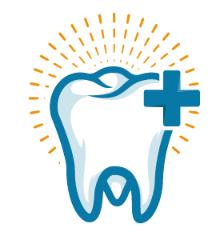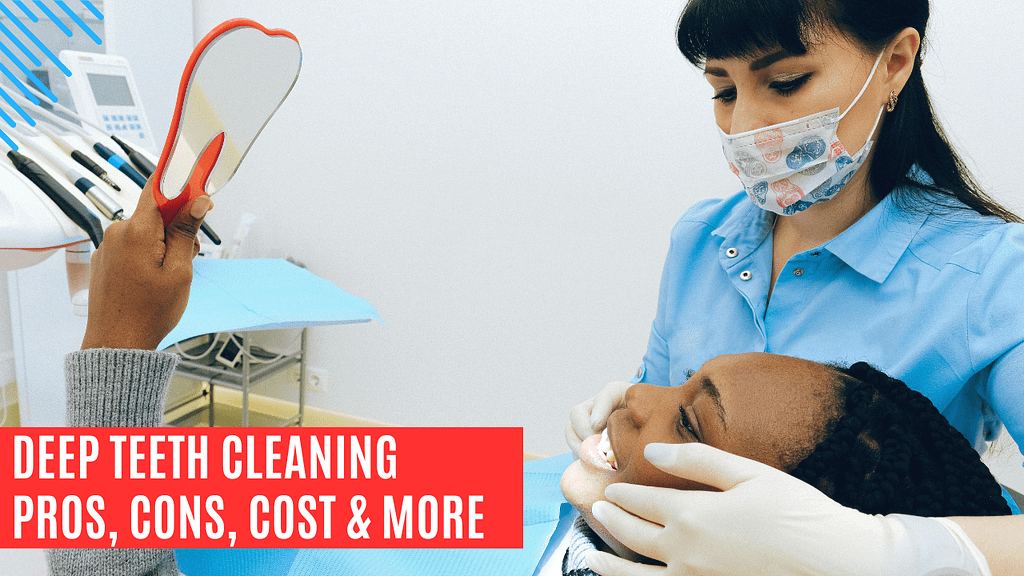Maintaining good dental hygiene can ward off gum disease and foul breath. Thus, it’s critical to brush and floss on a regular basis and visit the dentist for a routine cleaning twice a year. On the other hand, a dentist may advise deep teeth cleaning.
If you have gum recession, loose teeth, or bleeding gums, you can benefit from a deep cleaning.
Oral Directions offer thorough guidance about deep dental cleaning, its types, benefits, drawbacks and ways to reduce teeth sensitivity after deep teeth cleaning, and much more.
Follow our blog for all your dental concerns and find home remedies for common issues and concerns.
What Is Professional Deep Teeth Cleaning?
Dentists recommend professional dental cleaning to remove tartar and plaque build-up. It is a non-surgical and non-invasive dental procedure performed at a dentist’s office. Deep cleaning is also known as root planing or periodontal scaling.
Annual teeth cleaning can tremendously reduce the chance of gum disease, as plaque and tartar formation are the key factors that cause gum inflammation and dental diseases.
Plaque is formed over time due to the accumulation of food particles and residues around teeth and gums.
Plaque is basically a sticky coating present on the surface of the teeth and is a breeding ground for harmful bacteria.
Brushing daily twice a day can prevent plaque formation, but if you don’t brush properly, then it would lead to the formation of tartar.
Tartar is the advanced form of plaque; simply put, tartar is actually hardened plaque. It cannot be removed by regular flossing or brushing. You need professional cleaning to remove it from the teeth. Furthermore, it might result in gingivitis, a common gum condition.
How Deep Teeth Cleaning Prevents Gum Diseases?
If you do not regularly clean your teeth, it could lead to severe gum and oral diseases due to the overaccumulation of tartar and the build-up of plaque.
If left untreated then it could lead to severe dental diseases, such as periodontitis, in which the soft tissues around teeth get damaged, which consequently results in the loss of bony structure.
Routine Teeth cleaning can prevent the chances of gum and teeth diseases and also have a positive impact on the overall health of the body.
Types Of Deep Teeth Cleaning
The dentist physically inspects the patient’s teeth and gums prior to dental cleaning in order to look for any indications of gingivitis or other possible issues.
A treatment plan can be developed to meet the individual needs after all assessment data has been gathered and a diagnosis of the existing conditions has been determined.
X-rays can assist in identifying anything odd that has to be treated. Dental cleanings are broadly classified into the following four types:
1. Prophylaxis Cleaning:
It is a preventative cleaning. During prophylactic cleaning, plaque and tartar are removed from the front, back, and teeth.
2. Root planing and scaling:
Scaling and root planing, also referred to as deep dental cleaning, are procedures done on patients with gum diseases such as gingivitis or periodontitis.
3. Periodontal Maintenance:
Periodontal maintenance is recommended for people with gum disease. This type of cleaning is carried out more regularly than preventative cleanings, and they are typically continued until the symptoms of periodontitis are controlled.
4. Gross Debridement
When routine dental cleaning is insufficient, this dental cleaning method is carried out.
A scaler tool is used to remove plaque. After removing plaque dentist would carry out prophylactic cleaning.
Which Dental Cleaning Type is Right for You?
Most people find prophylactic cleaning to be very helpful, while some may benefit from scaling and root planing and scaling, periodontal maintenance.
Gross debridement is advisable for those who delay dental cleaning for such a long time.
After a physical examination, the dentist or a dental hygienist can recommend the type of cleaning that is ideal for you.
It is important to note that any kind of cleaning will undoubtedly improve your oral health and avoid uncomfortable.
What are the Benefits of Professional Deep Teeth Cleaning?
By regular dental cleaning, you can prevent the chances of serious oral diseases like gingivitis, periodontitis, and tooth loss.
During scaling, a dentist checks for indications of oral cancer, tooth decay, and other oral health problems.
The following are their main advantages:
- Boost general health
- halt the spread of periodontal disease.
- Speed up the recovery time for already present infections
- Eliminate foul breath
- Preserve the teeth’s roots.
- Prevents gum disease
- Shields dental roots
- Encourages healthy gums
What Are the Drawbacks Of Professional Deep Teeth Cleaning?
Deep cleaning typically has very little risk. It could last for five to seven days.
The following are the main drawbacks:
- It might harm nerves.
- It may result in the gums receding.
- Infection risks(immunocompromised individuals)
- It may result in Sensitivity and pain.
- Gum bleeding and soreness.
- Might need antibiotics for proper healing.
11 Ways to Reduce Sensitivity After Deep Dental Cleaning?
Follow these tips to reduce teeth sensitivity after a cleaning procedure:
- Use desensitizing toothpaste
- Rinse with salt water
- Use OTC medicines (acetaminophen, ibuprofen)
- Use a soft toothbrush or electric gentle brush
- Use a mouthguard
- Avoid highly acidic foods
- Use a fluoride mouthwash
- Drink honey water
- Consume Soft diet (yoghurt, mashed potatoes)
- Use Cold compress
- Use analgesic
Bottom Line
Scaling and root planing, or deep dental cleaning, is a dental procedure that is used to treat gum diseases. It also aids in stopping the progression of oral disease.
It involves removing plaque and tartar from below the gum line and smoothing the tooth roots to promote healing and reattachment of the gums.
This treatment can greatly enhance dental health and even help avoid tooth loss if cleaning is not routinely feasible.
Find more tips and oral directions to a brighter smile at our blog.
FAQ’S
Is deep teeth cleaning a painful procedure?
Root planing and scaling may cause some pain and discomfort, although the injection of local anesthetic eliminates pain during the procedure.
Is deep teeth cleaning worth it?
Yes, deep teeth cleaning is quite useful as it helps to prevent chances of gum diseases, tooth decay, and cavities.
How long does deep cleaning take to heal?
The gums could take a few days to a week to heal after the deep cleaning is done. Mostly, it takes almost seven days.
Do gums reattach after deep cleaning?
Yes, gums do reattach to the teeth after deep cleaning. It also promotes gum healing by removing dental plaque.

